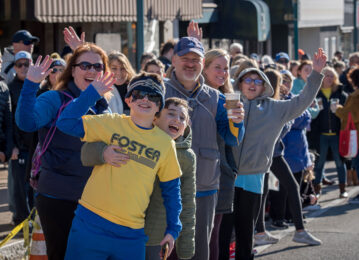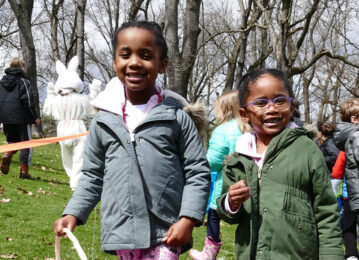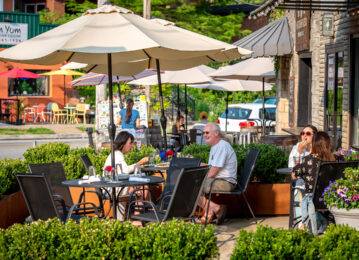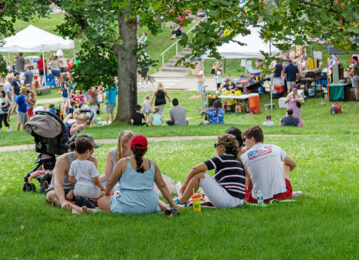Check out what’s
Trending

Happy Holidays and 2025 Highlights
The number of deer/vehicular crashes, often with injuries and/or property damage, has increased dramatically as the deer population has grown in Mt. Lebanon’s densely developed 6.2 square miles. The program also addresses the public concern about Lyme disease and the over-browsing of native vegetation.
In addition to causing accidents, deer extensively damage the young trees in our parks, evidence to which can be found by looking at the state of our woodland parks. Native plants in our parks, both natural and volunteer-planted, are already subjugated by invasive species. Excess pressure from the deer population has hampered natural woodland regeneration and volunteer efforts to help.
The Mt. Lebanon Nature Conservancy invests significant volunteer time and effort into planting new trees in our municipal parks, and has reported substantial damage to tree plantings in the past due to deer foraging. Effectively managing the size of the deer herd in Mt. Lebanon is an important part of maintaining a vibrant and sustainable tree canopy throughout our parks and wooded areas.
White-tailed deer can have significant effects on forest health, species composition and economic development. Because deer are herbivores, they dedicate a considerable amount of time to foraging, which can lead to several negative impacts when the population is unbalanced:
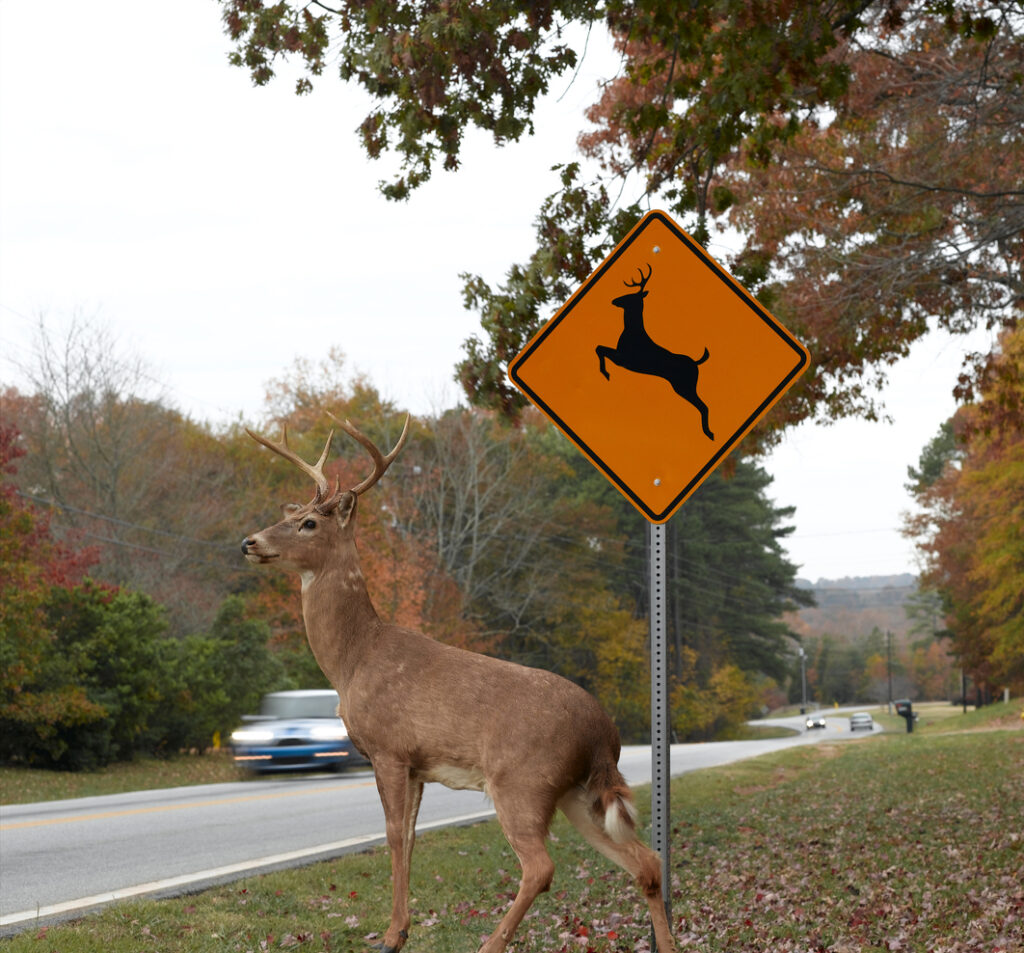
Before making a decision, municipal staff and commissioners talked with many professionals regarding fertility control research, controlled hunting and professional sharpshooting. The Commission decided that although fertility control might be an option that Mt. Lebanon and the Pennsylvania Game Commission could consider in the future, sharpshooting in conjunction with the organized archery hunting was the best way to move forward.
Public properties used for the deer management program include the Mt. Lebanon Golf Course, McNeilly Park, Robb Hollow Park and the Conservation District. Additionally, multiple private properties are utilized for both archery hunting and sharpshooting. No culling will take place near schools or safe walking routes. Various parties will be notified by letter, email or phone call.
Harvested deer are removed immediately and taken to a local processor, with the meat then donated to the organization Hunters Sharing the Harvest or its designated agents.
Remember, it is illegal to feed deer in Mt. Lebanon.
Managed archery hunting is an essential part of the Mt. Lebanon Deer Management Program. The program is run by Suburban Wildlife Management Solutions, Inc. (SWMS), who also selects the volunteer archers. Archery hunters are permitted to hunt various public and private property locations throughout the community. Pursuant to the law, archery hunting takes place only during the permitted dates and times established by the PA Game Commission, which is mid-September through the end of January. In addition, Mt. Lebanon and SWMS impose stricter rules than those established by the PA Game Commission to further regulate permitted activities and ensure the program remains safe and discreet throughout the hunting season. Archery hunting is prohibited on municipal-owned properties on Saturday and Sunday.
Private property locations donated for this purpose are important to the program. All private properties are first assessed via overhead mapping. Following the initial assessment, representatives of SWMS conduct an onsite evaluation. Site evaluations for sharpshooting are also completed with a representative(s) of the Mt. Lebanon Police Department to identify any potential safety hazard. All potential property is assessed for feasibility, to ensure it is not too small or has high volumes of pedestrian traffic making it unusable for archery hunting.
Archers interested in volunteering are encouraged to contact SWMS and complete the application process. Participation is limited to residents of Mt. Lebanon. Property owners wishing to donate their property may also contact them.
Mt. Lebanon’s sharpshooting program typically runs in February and March. Mt. Lebanon has hired Suburban Wildlife Management Solutions, Inc. (SWMS) to cull the community’s deer population using sharpshooting as part of a comprehensive deer management program. The Pennsylvania Game Commission issues a special use deer control-political subdivision permits annually for this activity.
Certified wildlife biologists and professional field technicians will conduct the cull. SWMS, which has been involved with many suburban deer management programs in the region, is responsible for the sharpshooting effort and has qualified all the sharpshooters. The Nuisance Wildlife Control Operator Association also has certified these personnel as suburban marksmen.
SWMS specialists will work on private property donated for the purpose, as well as in designated municipal parks. Parks include the municipal golf course, McNeilly Park, Robb Hollow Park and the adjacent public works property, and the conservation district on Connor Road. SWMS specialists will set out bait for the deer and then shoot from fixed, elevated positions, ensuring that the bullets will not stray beyond the targets. They will use suppressed rifles so that noise does not disrupt the community.
Property owners wishing to donate their properties for sharpshooting may also contact SWMS.
The special use deer control political subdivision permit allows culling activities to take place seven days a week. Shooting will take place in the late afternoon and after dark. Safety is paramount, and therefore a shooting location must ensure safe operations. Discretion also is an important factor to ensure the least disruption to residents. Finally, support and cooperation from proximate landowners is a requirement to avoid conflicts between neighbors. In addition to SWMS personnel, a site inspection team from the Mt. Lebanon Police Department will inspect each proposed site. The goal of the MLPD’s involvement in site inspections and operational oversight is to maximize public safety for our community during any deer management initiatives.
SWMS has been using these methods effectively to control deer in many different environments, and no injuries or deaths have ever resulted. The sharpshooting will occur only from fixed, elevated positions (providing an earthen backdrop at all times) and will use frangible bullets designed to prevent ricochets—both important safety measures. Police and the local wildlife conservation officer will be notified of the dates and times of the anticipated deer
removal.
Deer are shot per American Veterinary Medical Association guidelines for euthanasia. The method used ensures no deer will exit a property on which permission has been granted.
Any resident who has a safety concern is urged to call 911 immediately.
For additional information: Pennsylvania Game Commission Deer Management Program
Property owners can take measures to keep deer from seeing their vegetation as a salad bar. Many of these tips have been included in Mt. Lebanon Magazine, where you can read articles about deer-resistant plants, as well as repellents and yard design ideas.
Check out what’s

Happy Holidays and 2025 Highlights
